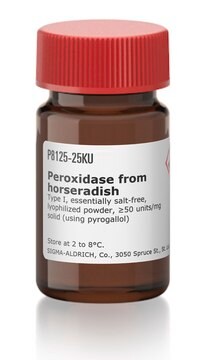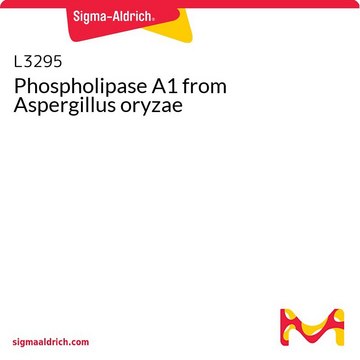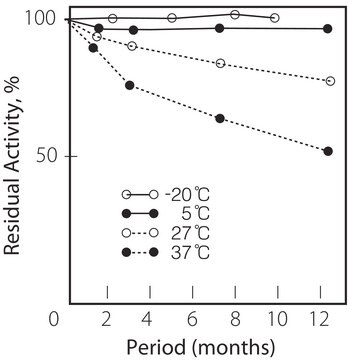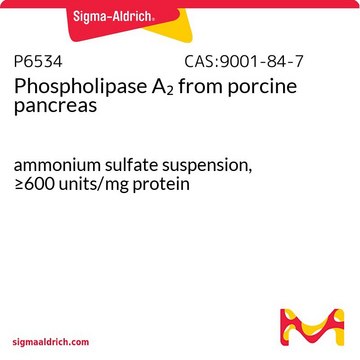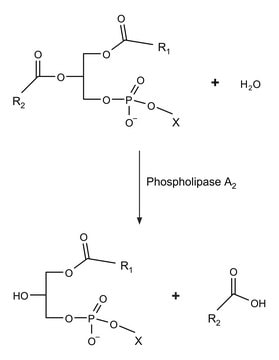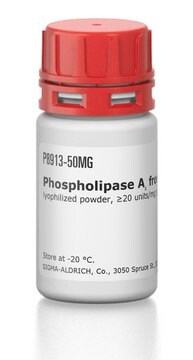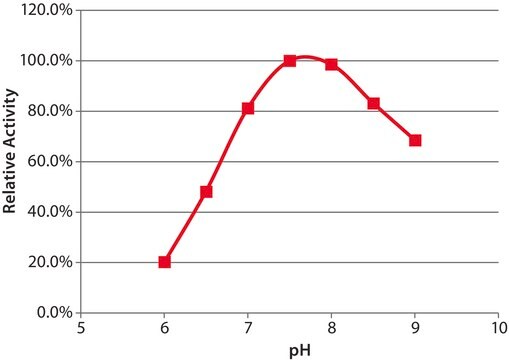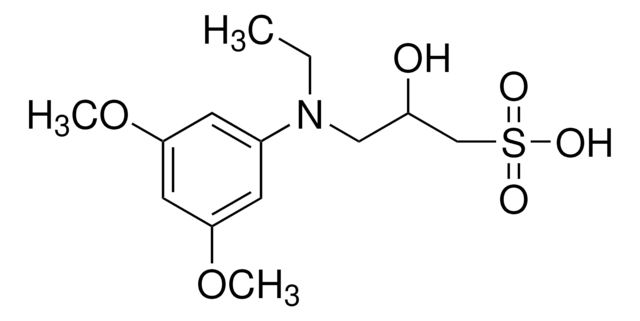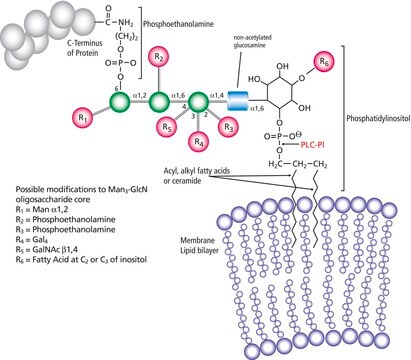P0065
Phospholipase D from Streptomyces chromofuscus
≥50,000 units/mL, buffered aqueous glycerol solution
Synonym(s):
Lecithinase D, Phosphatidylcholine phosphatidohydrolase
About This Item
Recommended Products
form
buffered aqueous glycerol solution
specific activity
≥50,000 units/mL
mol wt
~60 kDa
shipped in
dry ice
storage temp.
−70°C
Looking for similar products? Visit Product Comparison Guide
General description
Application
Biochem/physiol Actions
Unit Definition
Physical form
Signal Word
Danger
Hazard Statements
Precautionary Statements
Hazard Classifications
Resp. Sens. 1
Storage Class Code
11 - Combustible Solids
WGK
WGK 3
Personal Protective Equipment
Regulatory Listings
Regulatory Listings are mainly provided for chemical products. Only limited information can be provided here for non-chemical products. No entry means none of the components are listed. It is the user’s obligation to ensure the safe and legal use of the product.
JAN Code
P0065-BULK:
P0065-VAR:
P0065-25KU:
Choose from one of the most recent versions:
Already Own This Product?
Find documentation for the products that you have recently purchased in the Document Library.
Customers Also Viewed
Our team of scientists has experience in all areas of research including Life Science, Material Science, Chemical Synthesis, Chromatography, Analytical and many others.
Contact Technical Service


